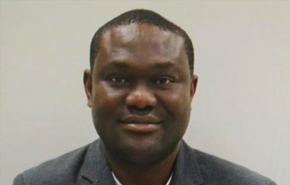IASC - Computational Strategies for Tackling Imbalanced Data in Machine Learning
| Date | 23 Feb 2024 |
| Time | 14:00 GMT+01:00 - 15:30 GMT+01:00 |
| Level of instruction | Intermediate |
| Instructor |
Prof. Olushina Olawale Awe
|
| Registration fee | |
Imbalanced datasets pose a significant challenge in machine learning, where the disproportionate distribution of classes leads to biased models that favor the majority class. This webinar dives deep into the nuanced strategies and computational methodologies essential for effectively handling imbalanced data in machine learning models. Join us for an insightful session where I share invaluable insights, address the complexities of imbalanced data, and provide actionable solutions to mitigate its impact on model performance.
Instructors

About the instructor
Prof. Olushina Olawale Awe is a Nigerian-born statistician and data scientist with a rich tapestry of accomplishments and leadership roles in the global statistical community. With an illustrious career, he has garnered international recognition and made substantial contributions to the world of data-driven disciplines. As the Vice President of Global Engagement and Public Relations for the LISA 2020 Global Network, Olawale Awe has been an instrumental bridge-builder, fostering global collaboration and communication. His visionary leadership shone brightly when he established Africa's inaugural LISA 2020 Data Science Laboratory in 2014, marking a pivotal milestone in advancing data science and statistical capacity across Africa and in more than ten developing countries. He is presently one of the vice presidents of the International Association for Statistics Education (IASE), and a former council member of the International Society for Business and Industrial Statistics (ISBIS) and a member of IASC. He aims to drive positive change at ISI through mentorship and capacity building in statistics in regions with limited access to educational opportunities